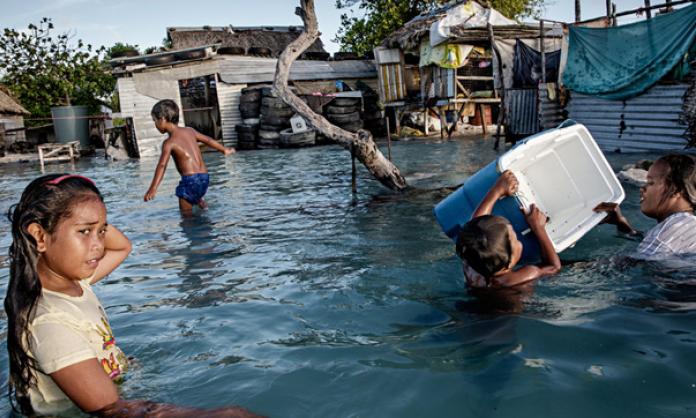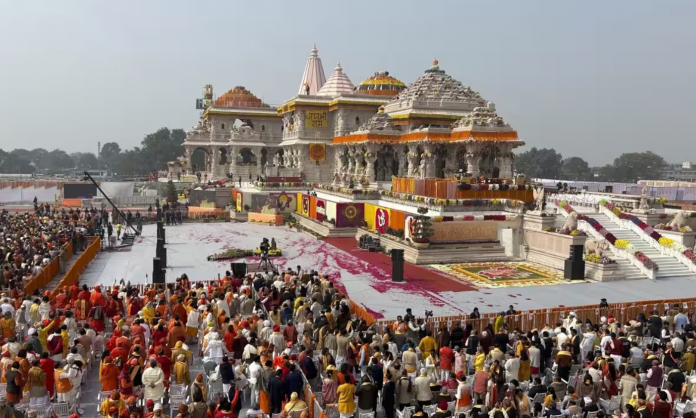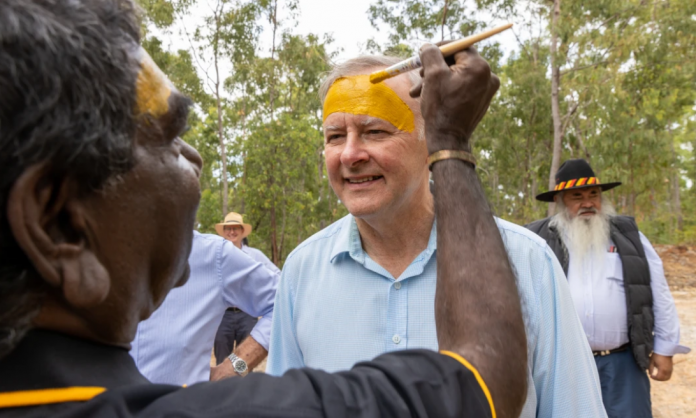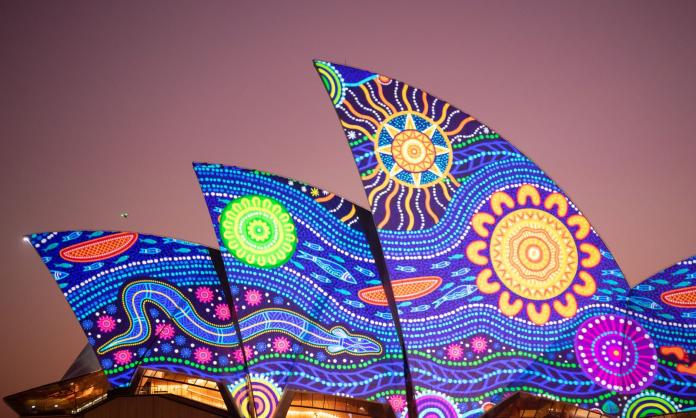Two artefacts sum up the evangelical bigot Scott Morrison: the lump of coal he brandished in parliament in 2017, and the stopping-the-boats trophy that has pride of place in his office. They represent two passions of contemporary conservatives: pollution and brutal borders. These are closely linked. The climate crisis is about more than the natural environment. It is also a crisis of human society, set to cause unprecedented mass displacement.
Seas are rising. Droughts and floods are becoming more intense. Deserts will spread into once habitable land. The world’s working class and poor, particularly people of colour from the Global South, will face the brunt of the catastrophe. The ruling class will seek to place the burden of the climate crisis on the people who did the least to cause it. Their tools will include the militarised borders and concentration camps that are already in place and expanding.
What is happening today on the US-Mexico border is a taste of things to come. As people arrive in their thousands, fleeing violence and poverty in Central America – much of it a result of US imperialism – they are met with more violence and brutality. The “greatest democracy on Earth” responds with barbed-wire fences, a militarised border and ICE patrols. It separates children from their parents and locks them in cages.
In Australia, people fleeing persecution and terrible conditions not of their making are similarly treated like animals – locked up for years on end in unsafe and degrading conditions with no certainty about their future.
Almost 19 million people in 2017 were displaced as a result of natural disasters. The climate crisis will likely create millions more. There are currently one billion people living in areas at high or very high risk of “climate exposure” – which means they are immediately threatened by the potential for droughts, floods and storms that could render them uninhabitable. International law does not recognise climate refugees as a category, a dilemma that condemns millions to a precarious existence.
Even without crossing a border refugees can find themselves abandoned by the system, which cares only about profits, not the protection of human life or dignity. Bangladesh, a country that includes the floodplains of the world’s largest river delta, is an example. Some six million people have already been internally displaced by natural disasters, including floods, droughts and heat waves. Conservative estimates suggest this number could reach 20 million within a decade.
Seeta Rani Mohaldar is a Bangladeshi refugee displaced by Cyclone Aila, which left one million people homeless across India and Bangladesh. She had to travel across the country after her village was destroyed, and today she makes her money collecting fish and firewood. She described her family’s life to the Catholic news agency UCAN: “We have no land, no jobs and no good income. Often, we don’t know if we will eat tomorrow or not … this is an unbearable life”.
The World Bank estimates that within the southern parts of Africa, Asia, and the Americas, 140 million people could be internally displaced in the next three decades. And that’s just from the ecological effects of climate change – it does not take into account the conflicts and political upheaval that will inevitably emerge.
The Australian government might reasonably be accused of ignoring the climate crisis. It has fast-tracked approvals for the Adani coal mine, the first of six thermal coal mines planned for the Galilee Basin. But there are some parts of the Australian state that are seriously preparing for a future shaped by climate catastrophe: the military and Border Force.
In 2016, the Australian Defence Force published a research paper warning that “an increase in illegal foreign fishing or sea-borne migration to Australia because of climate change effects may increase demands for Australian Defence Force patrols in Australia’s north waters”. Last year, defence chiefs told the Senate Standing Committee on Foreign Affairs, Defence and Trade that “irregular migration pressure” caused by climate change would pose a “substantial security threat to Australia”. While Australia refuses to curb its carbon emissions, the government is already laying the political basis to turn back boats of refugees fleeing the Pacific Islands as they disappear under rising seas.
In the capitalist world system, crossing a border without permission is a greater crime than destroying the planet.
Any movement that wants to confront the climate catastrophe must also take on the violence, imperialism, nationalism and racism with which governments like our own will respond. Our fightback will have to be internationalist, involving a battle for the rights of workers and the poor to travel and organise freely. It will need to demand that governments everywhere provide for people affected by climate change, including safe passage to habitable areas and protection from poverty.
Preventing a climate catastrophe, mitigating the effects of climate change already unleashed and saving our species will require more than simply stopping carbon pollution. We’ll also have to end the system that survives by destroying the lives of the oppressed and exploited. Nations and borders are a key part of that system’s survival strategy.










